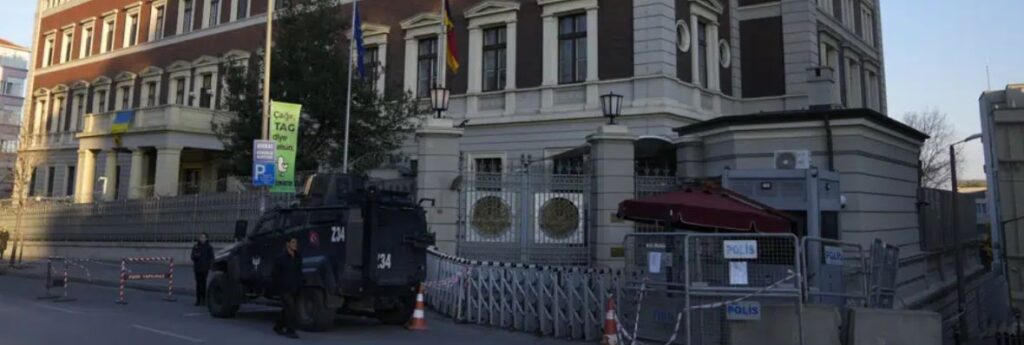Turkey has slammed a group of Western countries that temporarily closed down their consulates in Istanbul late last week over security concerns, accusing them of waging “psychological warfare” and attempting to wreck Turkey’s tourism industry.
Germany, the Netherlands, and Britain were among countries that shut down their consulates in the city of around 16 million people this week. The German Embassy cited the risk of possible retaliatory attacks following Quran-burning incidents in some European countries. The United States and other countries issued travel warnings urging citizens to exercise vigilance.
Canada did not close its embassy, but on the government travel website urges citizens to “exercise a high degree of caution in Türkiye due to the threat of terrorist attacks and the possibility of demonstrations throughout the country.”
Turkish Interior Minister Suleyman Soylu said the consulate closures and travel warnings were part of an alleged Western plot to prevent a rebound in Turkey’s tourism sector following the coronavirus pandemic.
“On a day when we declared our aim of (attracting) 60 million tourists, at a time when 51.5 million tourists arrived and we obtained $46 billion in tourism revenue, they were on the verge of starting a new psychological warfare (against) Turkey,” said Soylu, who is known for his anti-Western rhetoric.
Turkey’s Foreign Ministry summoned the ambassadors of nine countries – the US, the Netherlands, Switzerland, Sweden, Britain, Germany, Belgium, France, and Italy – and formally protested the security warnings and consulate closures, officials said.
The envoys were told that Turkey provides security to all diplomatic missions “on the basis of international conventions” and that their actions served what the ministry said was “terrorist organizations’ sneaky agendas.”
The interior minister said Turkey had conducted as many as 60 operations against the Islamic State group so far this year and detained 95 people. Last year, close to 2,000 IS suspects were detained in more than 1,000 operations against the group, he said.
Earlier this week, the Interior Ministry said Turkish authorities had detained a number of suspects following a warning from a “friendly country,” but hadn’t found any weapons, ammunition or sign of a planned act of violence.
In November, a bombing on Istanbul’s bustling Istiklal Avenue, located in the heart of the city and near a number of foreign consulates, killed six people and wounded several others. Turkish authorities blamed the attack on Kurdish militants.
Last weekend, Turkey’s Foreign Ministry issued a travel warning for European countries due to anti-Turkish demonstrations and what it described as Islamophobia. The warning followed demonstrations the week before outside the Turkish Embassy in Sweden, where an anti-Islam activist burned the Quran and pro-Kurdish groups protested against Turkey.
In a related development, Norway revoked a group’s permission to stage a protest in Oslo on Friday that would have involved an attack on the Quran, Turkish Foreign Minister Mevlut Cavusoglu told reporters. Police in Oslo confirmed that the protest was cancelled on grounds that security could not be ensured “in a satisfactory manner” at the event.
Earlier, Turkey summoned Norway’s ambassador and told the envoy that the planned action would constitute a “hate crime” that should not be allowed.
Recent demonstrations in Europe where activists desecrated Islam’s holy book have infuriated Muslims in Turkey and elsewhere.

